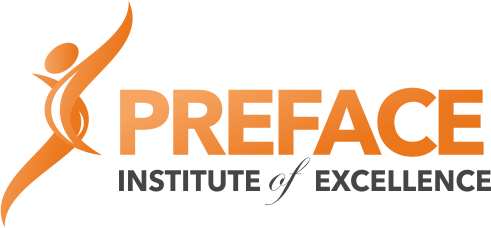The Doon School Entrance 2024: The Ultimate Guide to Admissions, Exam Details, and Preparation
Introduction: Understanding The Doon School’s Legacy
The Doon School is widely regarded as India’s top boarding school for boys, situated in Dehradun, Uttarakhand. Established in 1935, The Doon School is renowned for providing a balanced blend of academic excellence, personal development, and an ethos of service. Known for producing accomplished leaders in various fields, the school upholds a rigorous selection process to admit only the most promising candidates who show academic potential, creativity, leadership qualities, and a drive to make a difference.
This comprehensive guide will walk you through every aspect of The Doon School’s entrance process for 2024, covering essential information about the admission test, test structure, test locations, subject overviews, interview process, and preparation tips. With the insights here, students and parents can confidently approach the admission process.
1. Overview of The Doon School Admission Process
The admission process at The Doon School is multi-staged and designed to be both fair and thorough. Here’s a summary of each step involved:
Application Submission
Parents begin by filling out the admission application on The Doon School’s official website. Once submitted, this application allows the candidate to receive an Admit Card, which will grant them entry into the test center on the day of the exam.
Written Entrance Exam
The Admission Test is central to the selection process. It evaluates students’ academic strengths and readiness for the school’s challenging curriculum. Divided into four subjects (English, Mathematics, Science, and Reasoning), each section is crafted to assess specific skill sets and knowledge bases relevant to a holistic educational approach.
Interview Process
Shortlisted candidates are invited to the campus in Dehradun for an interview. The panel-led interview is a vital aspect of the admission decision-making process, assessing candidates for qualities such as curiosity, intellectual engagement, and the ability to work well with peers.
Final Admission Offers
Once all stages are completed, The Doon School will notify selected candidates with an official offer of admission. Unlike many other schools, The Doon School does not disclose marks, maintaining its focus on holistic assessment rather than purely academic scores.
2. Entrance Test Details: Subjects, Structure, and Test Locations
Test Date and Locations
The Doon School Admission Test for 2024 is scheduled for Sunday, October 6th, 2024. The test will be held at multiple centers across India, including:
- Dehradun (The Doon School campus)
- Delhi
- Lucknow
- Jaipur
- Mumbai
- Kolkata
- Secunderabad
- Bangalore
- Chennai
- Chandigarh
For international students, The Doon School provides options to arrange testing at certain overseas schools if travel to India is difficult. NRI candidates may also complete a provisional interview on the following day (October 7, 2024) if they test at The Doon School in Dehradun.
Exam Structure and Subject Overviews
The entrance exam consists of four one-hour papers conducted in the following order:
- English (9:30 AM – 10:30 AM): Tests comprehension, literary skills, and age-appropriate language competencies, assessing vocabulary, grammar, reading comprehension, and inferential skills.
- Mathematics (10:35 AM – 11:35 AM): A comprehensive test of mathematical reasoning and problem-solving. Topics cover a broad syllabus, including number theory, algebra, geometry, and real-life applications.
- Break (11:35 AM – 11:50 AM)
- Science (11:55 AM – 12:55 PM): Assesses understanding of core science concepts across physics, chemistry, and biology, focusing on analysis, interpretation, and real-world application.
- Reasoning & Case Study (1:00 PM – 2:00 PM): Designed to explore logical reasoning, critical thinking, and the ability to interpret case studies. This section evaluates out-of-the-box thinking and the candidate’s interests, values, and self-reflection.
3. Detailed Subject Overview and Preparation Tips
English
Test Focus: This section assesses candidates on their comprehension abilities, vocabulary, and grammar. It is crucial for candidates to not only understand the text but also infer meaning, identify themes, and communicate responses clearly.
Key Topics:
- Reading Comprehension: Candidates are expected to read passages and answer questions that test their understanding, inferencing skills, and interpretation.
- Grammar and Vocabulary: Correct usage of language is tested, with a focus on sentence construction, tenses, parts of speech, and vocabulary.
- Writing Skills: Short writing tasks may be included to test clarity of thought and the ability to express ideas coherently.
Preparation Tips:
- Read Diverse Materials: Newspapers, novels, and articles on various topics help expand vocabulary and improve comprehension skills.
- Practice Summarizing: Learn to condense passages into key points; this strengthens understanding and inferential thinking.
- Work on Vocabulary: Use tools like flashcards and quizzes to improve vocabulary.
Mathematics
Test Focus: The Mathematics section emphasizes problem-solving, analytical skills, and conceptual understanding. This test is designed to assess the candidate’s ability to apply mathematical principles rather than just rote learning of formulas.
Key Topics:
1. Numbers and whole numbers
2. Negative numbers and integers
3. Place value and rounding
4. Fractions
5. Sets
6. Decimals
7. Understanding elementary shapes
8. Ratio and proportion
9. Percentage
10. Profit and loss
11. Speed, time and distance
12. Exponents
13. Expressions and formulae
14. Fundamental operations in Algebra
15. Linear equations in one variable
16. Basic Geometry
17. Angles and their properties
18. Parallel lines and transversal
19. Triangles
20. Quadrilaterals
21. Graphs
22. Perimeter and area
23. Volume and surface area
24. Recognition of solids
25. Symmetry
26. Patterns and sequences
27. Data handling
Preparation Tips:
- Practice with Real-Life Problems: Working on problems that involve real-life scenarios helps in understanding how math applies to everyday life.
- Focus on Core Concepts: Ensure strong foundational knowledge, especially in algebra and geometry.
- Avoid Calculator Dependency: Practice calculations manually, as calculators are not allowed in the exam.
Science
Test Focus: Science questions assess knowledge of fundamental scientific principles, analytical skills, and practical applications of science in the real world.
Key Topics:
Biology
1. Characteristics of living beings
2. Cell and its structure
3. Understanding plants (types, parts and modifications)
4. Human systems (digestive, respiratory, circulatory, senses, movement)
5. Components of food
6. Adaptation in plants and animals
7. Health and hygiene
Chemistry
1. Common laboratory apparatuses and equipment
2. Elements, compounds and mixtures
3. First twenty elements of the Periodic Table
4. Valency and writing formulae of a compound
5. Basic techniques of separation of mixtures
6. Chemical reactions – word equations
7. Air and atmosphere, pollution
Physics
1. Physical quantities and their measurement: measurement of length, time, mass, density,
temperature and area
2. Matter and its characteristics: solids, liquids and gases
3. Forces and motion: Types of forces
Define: distance, displacement, speed, velocity, acceleration. Types of motion
Numerical on calculating speed, average speed, acceleration, distance, time
Measurement and comparison of mass and weight
4. Energy: Define energy and its unit
Different forms of energy, interconversion of energy based on real life examples, law of
conservation of energy (no numerical for this section)
5. Heat: Define heat energy
Temperature and thermometer, effects of heat on different states of matter, modes of transfer
of heat and their effects and applications
6. Light: Rectilinear propagation of light and its applications
Understanding reflection, reflection of light in plane mirrors, laws of reflection and simple
numerical on it, primary and secondary colours, absorption and reflection of colours
7. Sound: Define sound, nature of sound
Terms defining the characteristics of sound (amplitude, frequency, time period, wavelength,
pitch, loudness, quality), absorption and reflection of sound (including echo), speed of sound
in different mediums.
Preparation Tips:
- Conduct Simple Experiments: Engaging in practical experiments can aid in grasping basic science concepts.
- Review Syllabus: Cover all listed topics thoroughly, focusing on understanding rather than memorization.
- Utilize Visuals: Diagrams and flowcharts are helpful for topics like human anatomy and physical principles.
Reasoning & Case Study
Test Focus: This section assesses critical thinking, logical reasoning, and creativity. Candidates should be ready to analyze case studies and approach problems from multiple angles.
Key Topics:
- Logical and Analytical Reasoning
- Pattern Recognition
- Case Study Analysis: Students will be given scenarios to assess their problem-solving and reasoning skills.
Preparation Tips:
- Solve Puzzles: Regularly practice logic puzzles and brainteasers to enhance reasoning skills.
- Stay Updated with Real-World Scenarios: Case studies often reflect real-world situations, so having general awareness helps.
- Be Genuine in Responses: The case study analysis often reflects personal interests and values. Authentic responses make a better impression.
Further overview of Verbal Reasoning:
The test is designed to explore the personality and interest of the candidate. The objective is
to help candidates share their strengths, interests, values and areas for growth. There are
no right or wrong answers. However, the intent is to analyse critical and out-of-the-box
thinking. No prior preparation is required for this test. The best approach is to be real and
authentic in your responses.
4. Interview Process: Tips and Expectations
After the written test, shortlisted candidates will be called for an in-person interview at The Doon School campus. The interview is a key part of the admissions decision, allowing the panel to understand a candidate’s personality, engagement, and curiosity.
What to Expect:
- Group Setting: Candidates are interviewed in groups of four by a panel led by the Headmaster.
- Key Qualities: The school looks for intellectual curiosity, presence, quality of questioning, confidence, and reflective thinking.
Preparation Tips:
- Engage in Conversations: Practice discussing topics of personal interest to get comfortable speaking clearly and confidently.
- Stay Informed: Having knowledge of current events or topics of interest shows awareness and intellectual engagement.
- Reflect on Personal Experiences: Prepare to share experiences or achievements that reflect personal values and strengths.
5. Post-Test Process: Admissions Finalization and Offers
Result Notification
The Doon School does not disclose individual scores or rankings. Instead, shortlisted candidates are notified within a few weeks of the written exam, and interviews typically follow in late November or early December 2024.
Final Offer and Admission
After the interview, the school informs selected candidates with an official admission offer. As part of The Doon School’s unique admissions process, only offers are shared—no detailed feedback or scores are disclosed.
Preface Institute: Your Partner in Cracking the Doon School Entrance Exam
Preparing for The Doon School entrance exam can be challenging, but with the right guidance and resources, students can approach it with confidence. Preface Institute is a specialized coaching center dedicated to helping students excel in the Doon School admissions process. With years of experience and a remarkable track record, Preface has become a trusted name among parents and students aiming to secure a place at one of India’s top boarding schools.
Why Choose Preface Institute?
- Proven Success and Expertise: Preface Institute has guided numerous students through the competitive Doon School entrance exam, boasting impressive results year after year. Many Preface students have successfully gained admission, thanks to the institute’s expert coaching and targeted preparation.
- Comprehensive Mock Test Series: Preface offers a unique mock test series that mirrors the format and difficulty level of The Doon School admission test. These mock exams include likely questions based on past exam patterns and are designed to sharpen problem-solving and reasoning skills, helping students become exam-ready.
- Personalized Guidance and Support: Preface provides tailored coaching sessions that focus on each student’s strengths and areas for improvement. This personalized approach helps maximize each candidate’s potential, ensuring they are well-prepared for both the written test and interview stages.
- Real Parent Feedback and Success Stories: Parents interested in learning more about Preface’s success can visit prefaceInstitute.com to view feedback videos and testimonials from families of successful students. These videos showcase the satisfaction and confidence that families have found through Preface’s guidance.
Choosing Preface Institute means entrusting your child’s preparation to an experienced team that understands The Doon School’s rigorous admissions process inside and out. With a proven approach and an unwavering commitment to student success, Preface Institute stands as an invaluable partner on the journey to The Doon School.
To start your journey towards your dream school , click here









